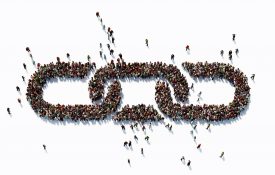-
New Research From Psychological Science
Read about the latest research published in Psychological Science. Perceived Aggressiveness Predicts Fighting Performance in Mixed-Martial-Arts Fighters Vít Třebický, Jan Havlíček, S. Craig Roberts, Anthony C. Little, and Karel Kleisner Past research has suggested that people can use facial cues to predict men's physical strength and fighting ability, but there is currently no direct evidence for this link. When participants rated pictures of mixed-martial-arts fighters for perceived aggressiveness and fighting ability, the researchers found that the perceived aggressiveness of fighters' faces was associated with the fighters' level of success in Ultimate Fighting Championship matches.
-
Grade inflation works – in schools and in the workforce, study finds
Los Angeles Times: Pop quiz: Two senior managers at different hair gel companies apply for a top management position at Aveda. Manager A’s division increased sales by 15% in a growing company, while Manager B's group increased sales by 10% in a company with no growth. Who gets to attend the Aveda Christmas party next year (and what time does Train C arrive in Chicago)? Through a series of experiments, Samuel Swift and his colleagues determined that what matters most for getting into school or getting that promotion is your final performance record, regardless of how difficult it was to succeed.
-
Blowing Out Birthday Candles Makes the Cake Taste Better
Smithsonian Magazine: On your special day, the cake emerges, all adorned with lit candles and groups of friends and family (and strangers, if you’re at a restaurant), embarrass you for about 60 seconds as they belt out the well-known tune. You make a silent wish and blow the candles out and the cake is then, at last, served. Food rituals like this one, it turns out, actually help us to better appreciate the flavor of the edible treats they are dedicated to. Ritualistic behavior, often coupled with anticipation, psychologists found, alter the way we perceive flavors for the better. Read the whole story: Smithsonian Magazine
-
3 Reasons Why We’re All Loafing At Work–And What To Do About It
Fast Company: To hear Wharton organizational psychologist Adam Grant tell it, at-work freeloading is a heady cocktail: a mixture of intrinsic and extrinsic rewards, of internal motivation and social obligation--or a lack thereof. The best ways to cure loafing, then, active those languid, latent energies. But we must make one caveat: that loafing or slacking can be easily conflated with what we've taken to calling negative space, that is, the not-doing that is crucial to doing your best work. How so? ... Folks slack off when they don't think their work matters--a lack of intrinsic motivation that is also a symptom of burnout, the ultimate bugbear of productivity and at-work wellness.
-
William and Kate: whatever you do, don’t call him Kevin
The Guardian: "What's in a name?" Shakespeare has Juliet ask in Act II, Scene II of Romeo and Juliet. "That which we call a rose by any other name would smell as sweet," she says – arguing that a name is merely a label, and a label does not change the essence of a thing. It's a lovely sentiment, but modern psychological science comes to a different conclusion. For many in the UK, and indeed around the world, one name that matters a great deal is that of William and Kate's newborn baby. On Monday afternoon, the Associated Press reported that the betting agency Ladbrokes had taken 50,000 bets as the Duchess of Cambridge went into labour.
-

Trust in Leaders, Sense of Belonging Stir People to Safeguard Common Goods, Analysis Shows
A team of researchers share scientific findings on conditions that foster cooperative use of common resources, ranging from drinking water to public television.

